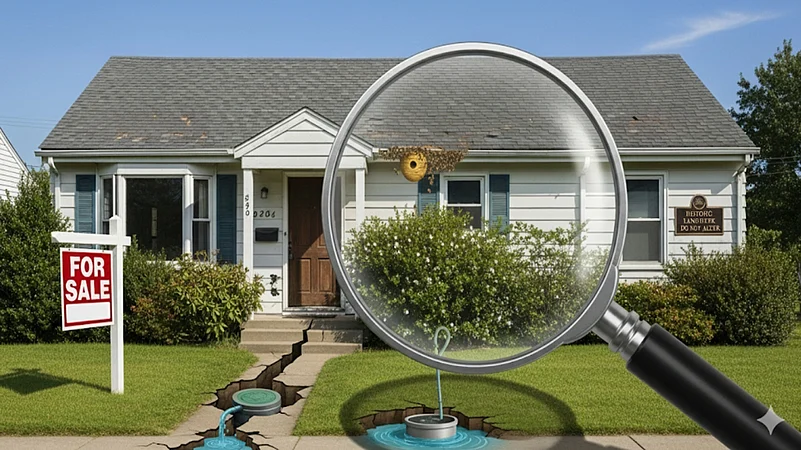
Summary of this article
There are several unexpected reasons why a home loan application may be rejected. Even with a high salary or strong credit score, approval is not always guaranteed. It is, therefore, wise to take precautions in advance.
After years of searching and brainstorming, Sushil Sharma from Ghaziabad finally found his dream home in Noida. He also applied for a home loan to cover the purchase. While he waited for approval, he received disappointing news: his loan application was rejected.
Sharma was shocked. He had a well-paying job and had never defaulted on a loan. Plus, the housing project was developed by a respected builder. So, what could be the reason for the rejection of his home loan?
There may be many possible reasons for a home loan rejection, some common and others unexpected. Here, we will explore six surprising reasons why a home loan may be denied.
1. Unapproved Builder
A home loan application gets denied because this particular issue occurs frequently, although most people do not anticipate it. The property of every builder does not qualify for bank loans from all financial institutions. The process needs immediate attention to determine which banks have given approval to builders and which banks have refused them.
If that is the case, then it will make it impossible for you to get a home loan from the concerned bank and you may have to go to a different bank for the same.
2. When The Builder Is Approved But The Property Isn’t
The home loan application faces denial because of this unanticipated problem. The bank maintains an approved builder list which contains the builder but their new project needs explicit bank approval to move forward. The bank will probably refuse to approve certain sections of the project since it spans multiple phases.
Thus, to avoid unexpected home loan rejections, it’s important to check that apart from the builder, their entire project – including its different phases – has got the necessary approval of the bank.
3. Mismatch Between Market Price and Bank Valuation
Picture yourself purchasing a home from the existing residential market. The buyer and seller determine the property price through mutual agreement while the buyer chooses to obtain a home loan for financing the purchase. The bank or housing finance company would approve the home loan based on their own property valuation which differs from the price that the buyer and seller agreed upon.
If the valuation amount exceeds the agreed-upon property price, there are no problems. However, in case the value of the property is lower, the bank will determine whether to offer a reduced loan amount or deny the application based on the property value assessment.
4. Issues Related To Credit History
Most people do not check their credit scores and are often unaware of them. Many surveys have found that a large number of respondents either did not know about credit bureaus, or were unaware of their credit scores. This explains why many people are surprised when their loan applications are rejected due to credit score issues.
Surprisingly, even individuals with a credit score of 700 or higher (out of 900) can be denied credit because of past mistakes. They may have forgotten old payments or missed charges, or they might have settled a loan long ago. These issues can negatively affect credit history, leading to rejection of a home loan.
5. Impact Of A Previous Tenant’s Default
Many housing finance companies now blacklist both the defaulter and their address. If you are living in a home associated with a previous tenant who defaulted on a loan or credit card payment, your home loan application is likely to be rejected.
Even if the specific address is not listed as a defaulter's, the entire area may still have a poor reputation with banks or housing finance companies for other reasons. In such cases, your loan application could also be denied.
6. Job Instability
Lenders prioritize job stability. Some banks require applicants to be employed with the same company for three years or more to qualify for a home loan. Lenders pay close attention to the stability of an applicant's job. Before approving a loan, many require that the person has a stable job and is a permanent employee. If these conditions are not met, the home loan application will likely be rejected.
Conclusion
There are, thus, many unexpected reasons for the rejection of a home loan application. One cannot be completely certain of securing a home loan, even with a high salary or good credit score. Therefore, it is wise to take precautions against these potential issues before applying for a home loan.










